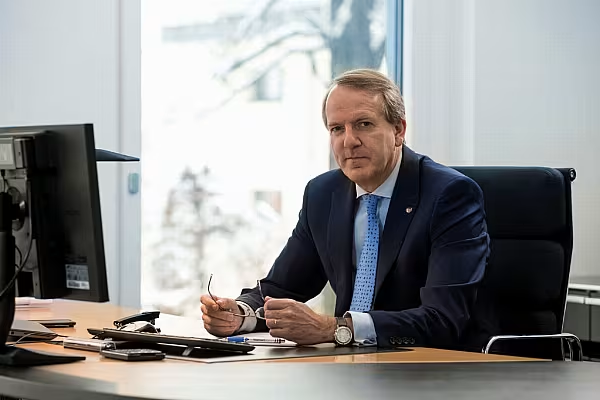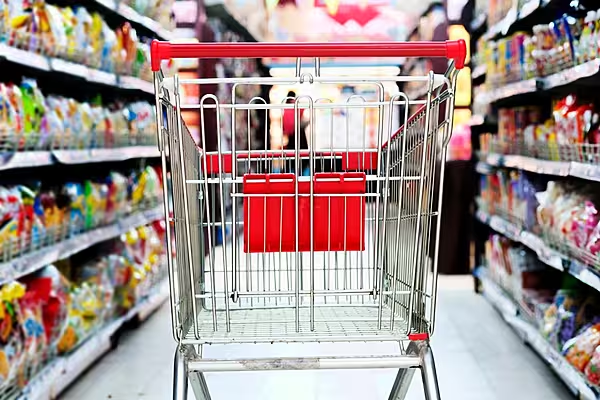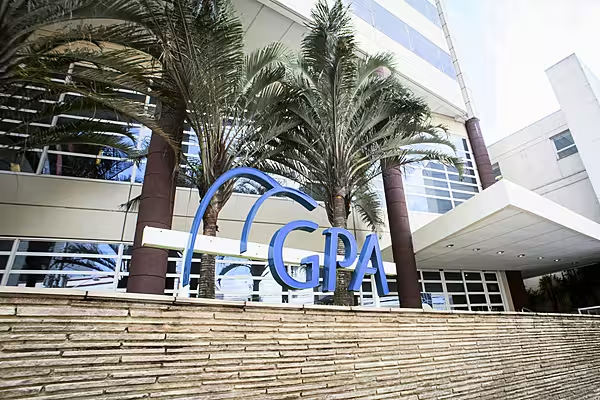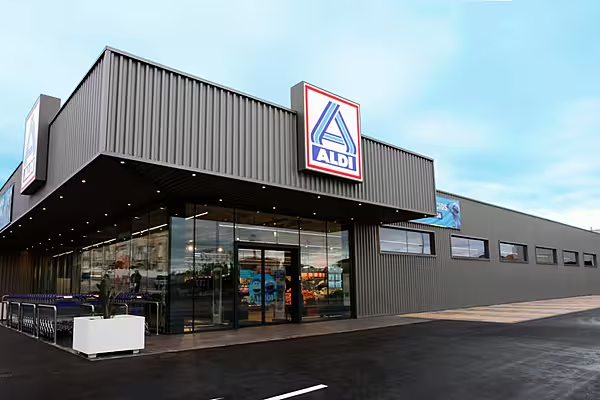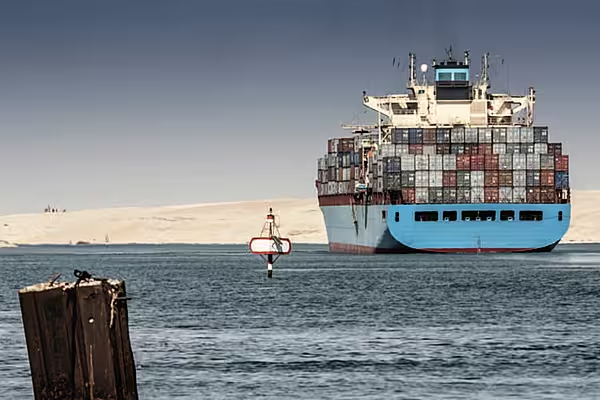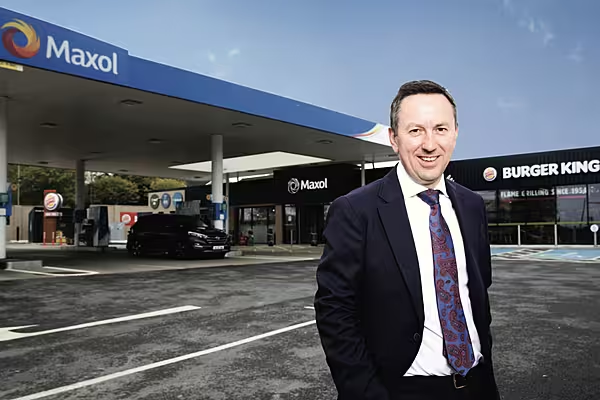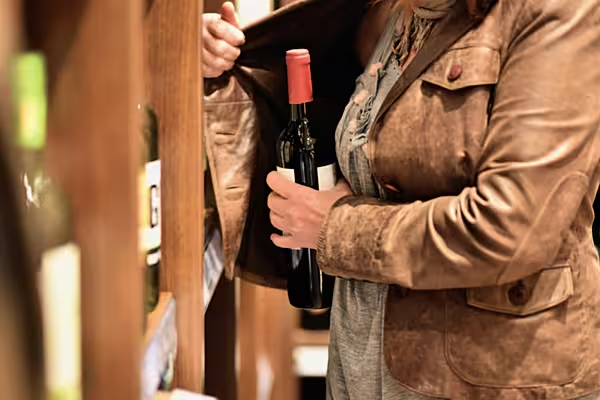Stephen Wynne-Jones meets EMD AG managing director Philippe Gruyters, as the retail alliance looks forward to its 35th anniversary next year. This article appeared in ESM's November/December 2023 edition.
It’s been close to a decade since ESM last travelled to the picturesque Swiss town of Pfäffikon – we can still hear the cowbells clanging in the distance – to meet Philippe Gruyters, the managing director of European Marketing Distribution (EMD), the leading European retail alliance and purchasing group, which at the time had recently celebrated its 25th anniversary.
With the group’s 35th anniversary coming up next year, what better opportunity, then, for a catch-up?
While the location may be different this time round – Copenhagen, rather than the shores of Lake Zurich – it’s refreshing to discover that EMD is continuing to thrive, bolstered by a network of members who understand the value of collaboration.
“We’re not the same organisation that we were ten years ago,” Gruyters tells me on the sidelines of the Consumer Goods Forum Sustainable Retail Summit. “We’re not what we were five years ago – and I can tell you that, in five years from now, we will be different again because we constantly adapt to the needs of our members and the challenges they face.”
Colruyt Partnership
In June of this year, EMD bolstered its ranks with the announcement of a partnership with Belgian market leader Colruyt Group, with regard to the international sourcing of private-label products, with the chief purchasing officer at Colruyt, Geert Roels, hailing the purchasing group’s “excellent reputation [...] for the joint procurement of high-quality and sustainably produced private labels.”
Colruyt is also a member of AgeCore – a retail alliance that it shares with Italy’s Conad, Coop Switzerland, and Eroski, in Spain – and it will continue to retain its membership of this organisation, both for national brands and private label, while also enjoying the benefits of EMD’s network.
According to Gruyters, EMD sees mutual benefits in collaborating with the retailer on a private label-only basis.
“Collaboration on private label brings even more efficiencies when you can work together geographically,” he says. “For example, Sweden, Norway, Denmark and Finland are geographically aligned. Germany, Belgium and Holland are the same. In terms of Colruyt’s membership of AgeCore, the other members of AgeCore are in Spain, Switzerland and Italy, so there’s not as much of a geographical connection.
“As a member of EMD, Colruyt can benefit from the expertise we have close to their markets, in the Netherlands, in Germany, in Scandinavia, and in other geographically-aligned markets – and we can benefit from their expertise on Belgian suppliers. There are lots of mutual benefits. I think Colruyt also see this a new opportunity, and one they would very much like to explore.”
Evolution Of Private Label
Of course, when EMD sat down to meet Gruyters some years ago, the private-label industry was still in its growth phase, with most retailers adhering to a good-better-best hierarchy when it came to own-brand development. The private-label sector of 2023, however, is an increasingly diverse, multi-tiered infrastructure, with many grocers positioning their store brand ranges as category drivers, rather than merely aping the category leader.
This is where EMD’s sourcing-and-purchasing approach comes into its own. By bringing its members together regularly, to plan sourcing and procurement, the group’s collective collaboration goes beyond the development of transactional relationships and is able to address broader issues, like the cost-of-living crisis and supply chain concerns – not to mention differing consumer tastes.
“Over the years, private label has really grown into a solid position inside retailers because it is able to offer trusted products that are very often at the same quality as A-brands,” says Gruyters, “but working together internationally on private label isn’t always easy because, ultimately, the consumer decides.
“Take pizza, for example. The salami on a pizza has a different taste in Scandinavia to what it has in Belgium, and that’s different to the taste in Spain or Italy. You can’t just say, ‘Let’s do an international product under private label,’ because every retailer has to make sure that their product is 100% what their consumer wants.
“At EMD, we believe in a bottom-up cooperation. That means it has to come from the buyers. It has to come from people that are dealing with the products every day and who best understand the commonalities, or the synergies.”
With this approach, EMD is able to leverage the knowledge that it has across the whole organisation and adopt a proactive, rather than reactive, approach to the needs of the market. The group also makes the effort to promote the individual success stories of its members, with a view to fostering new-product innovation.
“We have a programme called Champion Products, which highlights private-label products that have been developed by our members and have become a success in the stores of particular members,” says Gruyters.
“We might be talking about a Spanish Iberico ham or Danish butter cookies, or a prosecco in Italy under their private label – these are authentic products that have proven themselves in their specific markets, so why shouldn’t we share that experience amongst our members?
“You can go to major trade fairs to discover new products, but we believe the biggest source of new products is inside our network.”
Mutual Understanding
Regardless of geography, all retailers face similar challenges in their respective markets, and so, by bringing industry professionals together, they can realise the understandings that they all share.
With this in mind, EMD places a great focus on building relationships with strategic suppliers – who, in turn, can benefit from both economies of scale, as well as attractive buying terms – along with retail buyers. The group regularly organises ‘category days’, factory visits and expert presentations, bringing buyers together to leverage their expertise and knowledge across the industry.
“We also organise webinars for buyers when it comes to more general topics,” says Gruyters, “like sustainability, for example, or what are the expectations with regard to inflation? That sort of socialising within the alliance is a really important pillar for us.”
The Long Game
In the competitive landscape of private-label ventures, where retailers have the power to swiftly change suppliers, EMD distinguishes itself by prioritising long-lasting partnerships. The group is committed to identifying the optimal match that aligns with its criteria within a specific category or segment – in other words, suppliers that align with both the needs and the vision of EMD’s shareholders.
“For us, when it comes to sourcing or international tenders, it’s not about switching suppliers,” says Gruyters. “It’s about finding the best match. That doesn’t only involve price. It’s also about your sustainability requirements, your quality assurance requirements, your traceability requirements. Yes, the price is important, but there’s much more to it than price.”
Code Of Conduct
Two years ago, EMD sought to enhance its commitment to responsible, sustainable sourcing with the adoption of a code of conduct, which outlines 12 sustainability criteria to which private-label suppliers need to adhere in order to work with EMD.
These criteria are based on the tenets of the Consumer Goods Forum’s Sustainable Supply Chain Initiative (SSCI) – Elles de Jonge, manager, quality and sustainability, EMD, was named the SSCI’s co-chair earlier this year – and seek to be inclusive, with EMD offering support to suppliers that are not yet in compliance.
As the group put it in a 2021 statement, the code of conduct emphasises ‘strict adherence to high social standards and a dedication to recognised food safety standards as fundamental principles in the new purchasing guidelines’.
As Gruyters explains, it’s a stance that has been widely embraced by both members and the suppliers with whom they work.
“If you ask any of the members, ‘What are your requirements?’ when it comes to sourcing a particular product, you will find a lot of commonalities,” he says. “Of course, there are very small details that might differ from country to country, but we’re not going to impose things on members – it’s about finding the commonalities.
“With the code of conduct, there’s more than 90% that everybody has in common, so there’s no discussion needed.”
A People Business
Just as in 1989, when it was founded, EMD’s DNA is rooted in personal relationships, with Gruyters keen to stress the “people-centric” nature of how the group operates. As he puts it, establishing a partnership involves more than just price and product – it requires evaluating the overall relationship between the retailer and supplier.
“People from different countries have different personalities, so it’s always going to be a challenge to make sure that you can really connect to everybody, and that you understand them,” says Gruyters. “That’s how you can drive effective collaboration – different personalities working together.
“For example, I don’t know if you have ever been to Marca Bologna – the atmosphere at that fair is so particular. Everybody knows each other – they hug each other, like one big family. That's the Italian way of doing business, and that indeed is very different from the way other countries do business. And that's a reality that we have to work with.”
This collaborative approach is an indicator as to why EMD is approaching its 35th anniversary with all the founding members still actively involved. While the people behind the organisation understand the need to evolve in tandem with market dynamics and changing consumer requirements, its cooperative structure has enabled them to navigate the challenges of the past three decades – including the recent COVID-19 pandemic – and continue to grow stronger.
“We are a small organisation. We are very flexible, and we have to keep the dialogue with our members always ongoing, to find out where their needs are. Where can we support them? Where do we see opportunities internationally to make them stronger in their own market?
“If we are able to continue to deliver that service to our members, I believe that, in 35 years from now, we will still be in a very strong position.”
